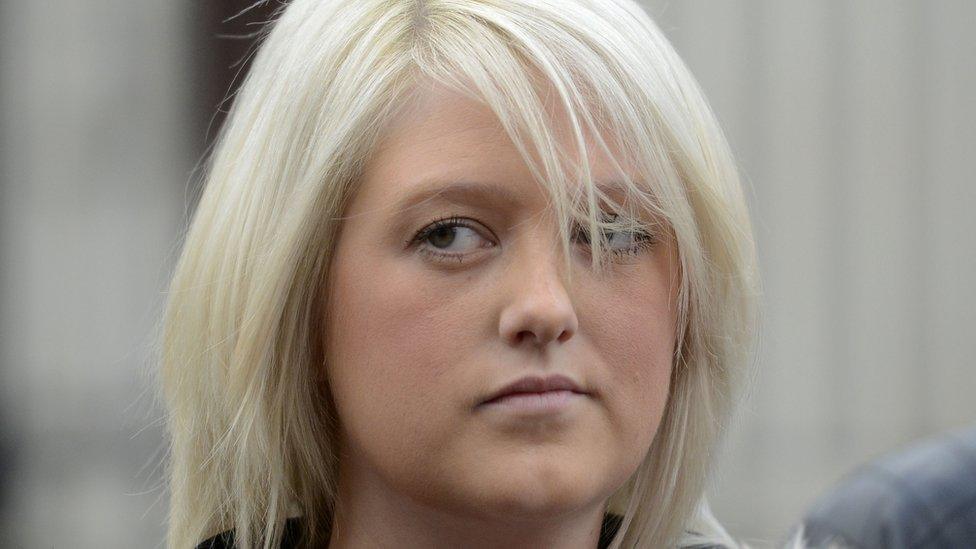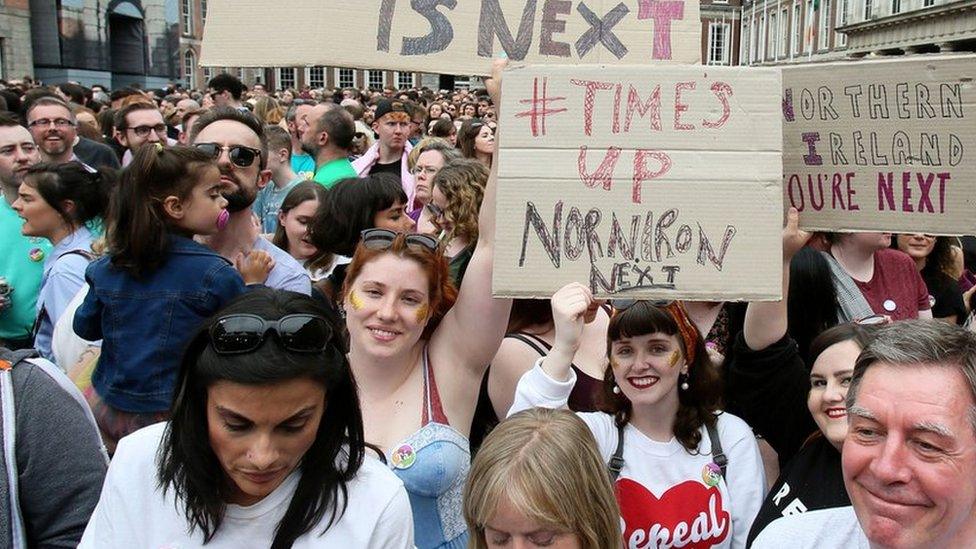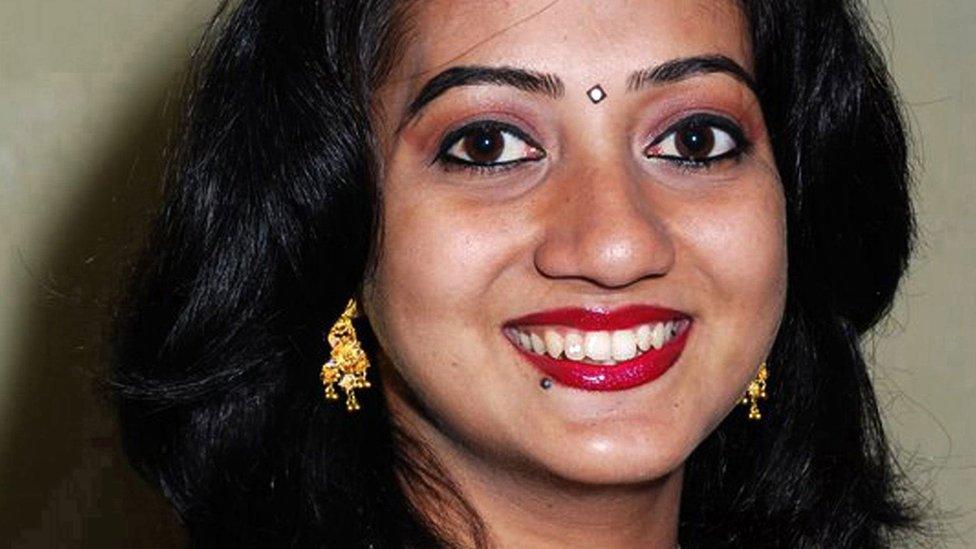Abortion: Theresa May urged to act on NI's strict law
- Published
'Women need help and support'
Theresa May has been urged to help liberalise Northern Ireland's abortion law by a woman whose experience brought the issue back before the courts.
Sarah Ewart went to England in 2013 for a termination after doctors said her unborn child would not survive outside of the womb.
Such a diagnosis, known as fatal foetal abnormality, is not grounds for a legal abortion in Northern Ireland.
Following Ireland's historic vote, she said NI women were in "limbo".
The Irish Republic overwhelmingly voted to overturn the country's abortion ban in a landmark referendum on Friday.
Attention has now shifted to Northern Ireland and the prime minister is facing a growing number of calls to bring the laws in line with the rest of the UK.
'Yellow pages'
Ms Ewart has been involved in a high-profile campaign to legalise abortion in Northern Ireland in cases of fatal foetal abnormality.

Sarah Ewart has been involved in a high-profile campaign to legalise abortion in NI in cases of fatal foetal abnormality
She said that in the absence of a devolved government in Northern Ireland, the prime minister and MPs should step in to help change the law.
"If we had an assembly here, we would be literally at their doors begging, but we don't so we are really hoping that we can have help from Westminster and Theresa May to give us the access we need here in Northern Ireland," Ms Ewart told BBC News NI.
"It's a relief that women like me are going to be able to travel down to Dublin to access this procedure, but really we are wanting the help here to have it within our own hospitals in Northern Ireland".
After Ireland's abortion referendum, BBC News NI gauges opinion north of the border
She described her experience five years ago as "devastating".
"We had no information at the time, the consultants and midwives here wanted to help but they couldn't give us any information," she said.
"Literally, yellow pages was what we went through and family planning popped up and that's where we went to make the appointment."
She said she would have preferred to have had the procedure in Northern Ireland, where doctors knew her history and all her family were around.
'No impact'
A Supreme Court judgment considering whether abortion law in Northern Ireland is incompatible with international human rights is expected later this year.
Unlike the rest of the UK, abortion is only permitted if a woman's life is at risk or there is a permanent or serious risk to her mental or physical health.
The leader of the Democratic Unionist Party, Arlene Foster, has said that the result of Ireland's abortion referendum has no impact on the law in Northern Ireland.

Nearly two in three Irish voters opted to repeal the Eighth Amendment to the Irish constitution, which effectively banned abortion.
Speaking on Sunday, Mrs Foster said: "The legislation governing abortion is a devolved matter and it is for the Northern Ireland Assembly to debate and decide such issues."
Downing Street is understood to believe that any reform "is an issue for Northern Ireland".
But a Downing Street source said it showed "one of the important reasons we need a functioning executive back up and running".
Northern Ireland has been without a government since January 2017, after a power-sharing deal between the Democratic Unionist Party (DUP) and Sinn Féin collapsed.

Northern Ireland's abortion rules
Currently, a termination is only permitted in Northern Ireland if a woman's life is at risk or if there is a risk of permanent and serious damage to her mental or physical health.
Rape, incest and fatal foetal abnormalities are not circumstances in which an abortion can be performed legally.
A fatal foetal abnormality diagnosis means doctors believe an unborn child has a terminal condition and will die in the womb or shortly after birth.
However, anti-abortion campaigners argue that doctors cannot accurately predict death, saying that terminally-ill babies "can and do defy the odds".
There is no restriction on travelling outside Northern Ireland to seek a legal termination in another jurisdiction.
Last year, the Westminster government introduced measures to help women from Northern Ireland access free NHS abortions in England.

- Published28 May 2018

- Published27 May 2018

- Published29 May 2018

- Published28 May 2018
